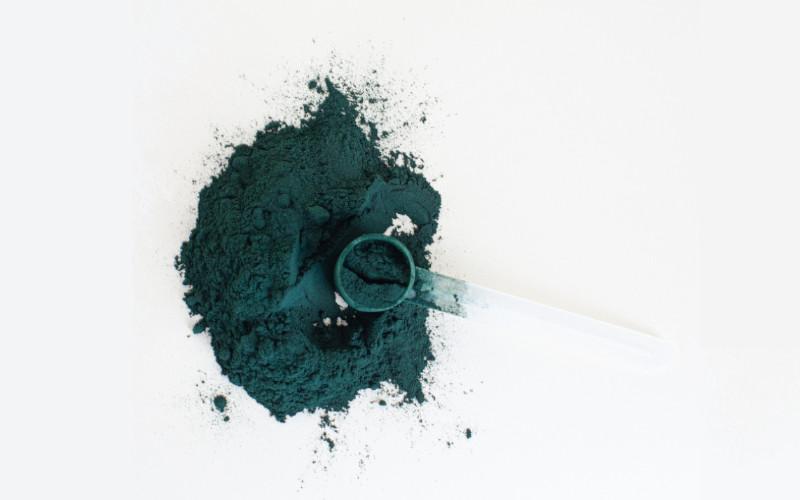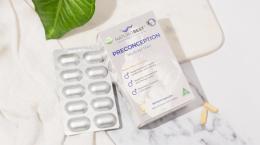8 Health Benefits of Blue Spirulina

Spirulina is a blue-green algae, Arthrospira Platensis, that grows in alkaline waterways, ponds and lakes. It is packed with B-complex vitamins, essential minerals, antioxidants, protein and carotenoids.
Blue Spirulina is an extracted component of whole spirulina. Phycocyanin pigments give blue spirulina its dark-blue appearance, and give this superfood its instagram-worthy status.
Blue Spirulina is ideal for those under stress and needing an extra boost to their energy and immune support levels.
Disclaimer:Always speak with your doctor before taking any action regarding your health. Supplements have a wide range of potential effects and it's important to ensure that they are right for you. This article is not intended to diagnose, treat, or cure any disease. This post is based on general knowledge and does not provide specific medical advice. |
Is Blue Spirulina good for you?
Blue Spirulina is not just a pretty face; it has numerous health benefits. Here are the top 8 reasons to take Blue Spirulina:
1. Powerful Antioxidants:
Blue spirulina contains several types of powerful antioxidants that neutralise free radicals and protect the body from oxidative stress [1].
2. May help with weight loss:
If you take spirulina 30 mins before eating it can help you to feel fuller, causing you to eat less.
3. May help improve digestive function:
Chlorophyll in spirulina helps to regulate digestive function and restore the balance of good bacteria in the GI tract.
4. Detoxifying:
Binds to excess metals in the body and may help remove them.
5. High in B vitamins:
Restores energy and helps your body to run at peak performance.
6. High in protein:
Helps fill nutritional gaps for a low protein, or plant-based diet. This form of protein is more easily absorbed in your body compared to meat, as protein is highly soluble in water.
7. Plant-based source of Iron:
Spirulina has been used in the treatment of anaemia.
8. Supports Muscle Recovery:
Beta-carotene in spirulina may aid in tissue repair and relieves muscle aches.
Is Blue or Green Spirulina Better For You?
Blue and green spirulina differ in the main pigment-protein complex called phycocyanin, which gives off a vibrant blue colour. Blue spirulina is in essence, an extracted component of organic spirulina.
Green spirulina is the most easily harvested form of spirulina as it is from whole-cell algae [2].
Blue spirulina boasts powerful health benefits, in particular its high antioxidant properties. Because it is pure extracted phycocyanin, it is a much richer source of antioxidants compared to green spirulina.
Green spirulina gets its colour from Chlorophyll; the substance the plant uses to draw energy from the sun. Research has shown Chlorophyll to have anti-aging and anti-cancerous properties [1].
In addition to the benefits of the blue spirulina extract, green spirulina is also known to assist in reducing allergy symptoms, lowering blood sugar levels and stabilising anaemia [2].
But with the additional benefits comes some major drawbacks;
As green spirulina comes from fresh water and remains a mostly unrefined wholefood, it has a powerful taste and odour. Many report that the biggest negative of green spirulina to be the fishy aftertaste.
Alternatively, blue spirulina has a sweeter taste with some mild sea vegetable notes, but no fishy taste. It is also much more visually appealing (take note, instagrammers), however it can often be more expensive due to the many steps involved in the extraction process.
So, which type of spirulina should you take?
If you’re looking for the most nutrient dense supplement, green spirulina is your go-to. If you have trouble with the fishy taste and smell, or you’re planning to show off a mystical-looking smoothie bowl, blue spirulina is your best bet.
How to Add Spirulina Into Your Diet
Add 0.5-1 gram (the tip of a teaspoon) to smoothies, cereals, yoghurt or juice. It acts as a vibrant, natural colourant to icing on cupcakes or biscuits.
Increased intake may be recommended for particular reasons, up to 3 grams daily. Depending on individual product potency, higher intake may be recommended by your healthcare professional.
Is Blue Spirulina Safe to Use in Pregnancy?
Blue Spirulina, like other forms of spirulina, is generally considered safe for consumption. Due to limited research about consumption during pregnancy, you should always consult your healthcare provider before taking it, like any other supplement. Low quality products run the risk of containing microcystins; toxins that could harm a developing foetus [2].
Always ensure you choose reputable brands and consult your GP.
Disclaimer: You should always consult a healthcare professional before commencing a supplement regime during pregnancy.
Top Product Recommendation
Lifestream Spirulina Blue: Extra Strength Blue Spirulina Performance
Nutritionally rich blue spirulina in easy-to-take capsule form; high in vitamins, minerals, antioxidants and essential amino acids. Lifestream Spirulina Blue Extra utilises an incredible algal plant superfood, which is high in bioavailable phycocyanin.
Lifestream Spirulina is grown away from pollution in pure mineral-rich water. It is non-GMO and sustainably sourced by the global leaders in microalgae research and cultivation.
The Takeaway…
Blue Spirulina is a nutritional powerhouse that supports immunity, muscle recovery and even weight loss. High antioxidant levels help it to lower inflammation and detoxify your body. It has a much more palatable taste than its counterpart, green spirulina, and adds an appealing vibrant colour to food. It is readily available in easy to take powder or capsule form.
References
[1] WebMD, 2022. Spirulina: Are There Health Benefits? https://www.webmd.com/diet/spirulina-health-benefits
[2] Medical News Today, 2021. Spirulina: Dosage, Eye Health, Oral Health and More. https://www.medicalnewstoday.com/articles/320067#possible-health-benefits
Disclaimer:Always speak with your doctor before taking any action regarding your health. Supplements have a wide range of potential effects and it's important to ensure that they are right for you. This article is not intended to diagnose, treat, or cure any disease. This post is based on general knowledge and does not provide specific medical advice. |







